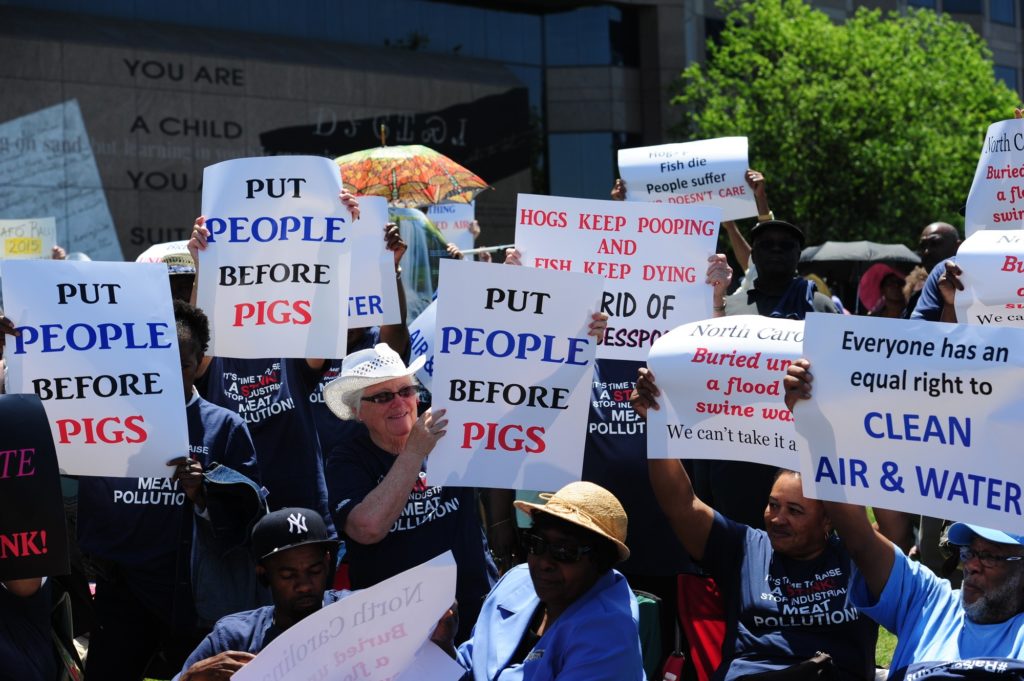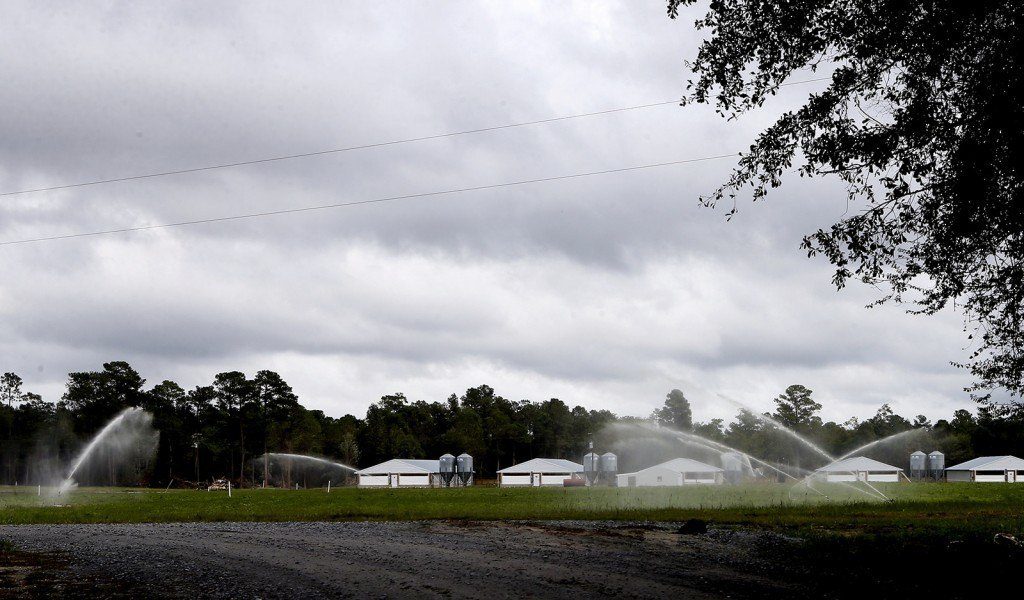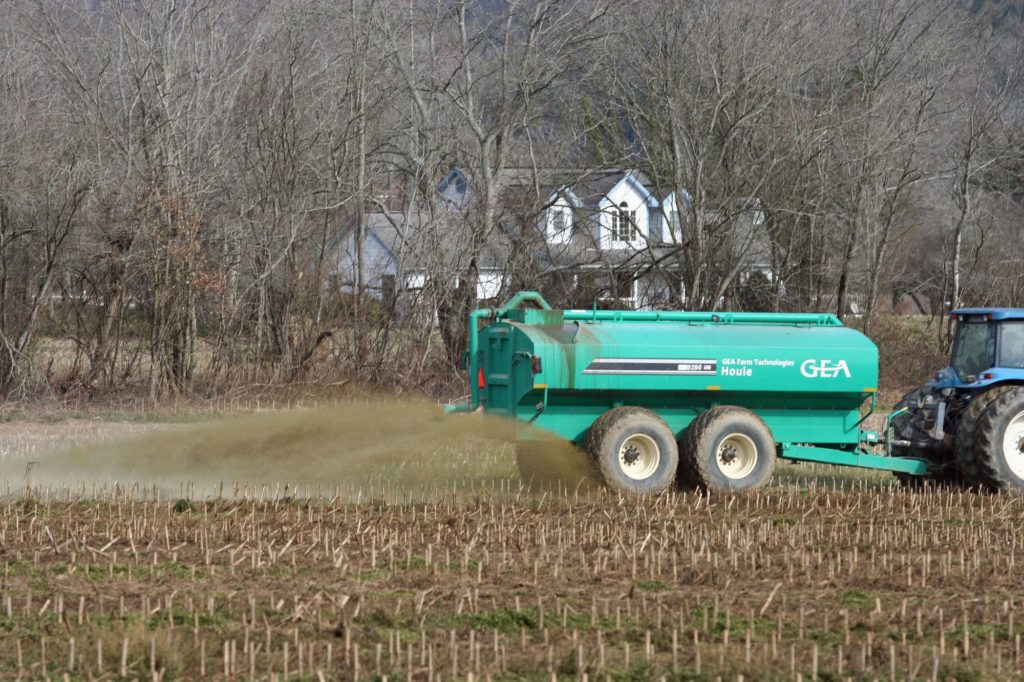People Before Swine Barons
By: Waterkeeper Alliance

Waterkeeper Alliance’s “Pure Farms, Pure Waters” campaign has long drawn attention to the negative effects of concentrated animal feeding operations (CAFOs) on public health and the environment. Waste mismanagement at these facilities has fouled the air and polluted the water in many communities across the United States.
Those effects are acutely felt in North Carolina, which produces more pork than all but one state in the U.S. and houses the world’s largest pork-processing plant. Industrial swine operations in that state manage millions of gallons of waste by storing it in unlined, open-air pits before periodically spraying it – often with large sprinkler guns that can aerosolize waste into tiny droplets – onto nearby cropland.
“In North Carolina, swine operations are heavily concentrated in the coastal plain, which is particularly vulnerable to this archaic approach to waste management.”
To make things worse, they are clustered in eastern North Carolina, in low-lying, flood-prone counties with sandy soils and shallow aquifers, where the numbers of African Americans, Latinos, and Native Americans living within three miles of an industrial swine facility are nearly twice as high as for non-Hispanic Whites.
In May, Waterkeeper Alliance and two North Carolina community groups, the North Carolina Environmental Justice Network (NCEJN) and the Rural Empowerment Association for Community Help (REACH), reached a settlement agreement with the North Carolina Department of Environmental Quality (DEQ) of a 2014 civil rights complaint filed with the U.S. Environmental Protection Agency. The complaint alleged that DEQ allowed industrial swine facilities to operate with “grossly inadequate and outdated systems of controlling animal waste” resulting in an “unjustified disproportionate impact on the basis of race and national origin against African Americans, Latinos and Native Americans.”

Under the agreement, which was reached after more than a year of mediation, DEQ committed to new policies to ensure compliance with federal civil rights laws, including a language access program and the development of a tool to identify and mitigate discrimination by assessing environmental, demographic, and health factors.
In addition, DEQ agreed to a number of changes in the draft permit that will be considered in the upcoming stakeholder process for the next swine general permit. “While these changes may seem technical,” said Waterkeeper Alliance staff attorney Will Hendrick, “they’re a big step in addressing air and water pollution from the swine industry.”

Naeema Muhammed, executive director of the NCEJN, recognized the groundbreaking nature of the settlement but also cautioned, “The harmful effects of the hog industry on communities in eastern North Carolina continue, and all of us involved in this struggle must keep the pressure on.”
Devon Hall of REACH added that “for too long people living in Duplin, Sampson, and other counties in the heart of hog country have had trouble breathing when they go outside. Even small changes in the permit can be important, like making clear that DEQ has authority to inspect without prior notice. It’s unacceptable that DEQ has been giving facilities advance notice before conducting an inspection.”
Larry Baldwin, formerly Waterkeeper Alliance’s N.C. CAFO Coordinator and now the Crystal Coast Waterkeeper, had the last word, “For too many years, the `lagoon and sprayfield’ system of waste management has allowed feces and urine to blow through the air and flow from the sprayfields into our waterways and into nearby communities. There’s still a long way to go, but the provisions in this agreement are a step in the right direction and provide more opportunities than ever before for people in eastern North Carolina to have a voice in decisions affecting their future.”